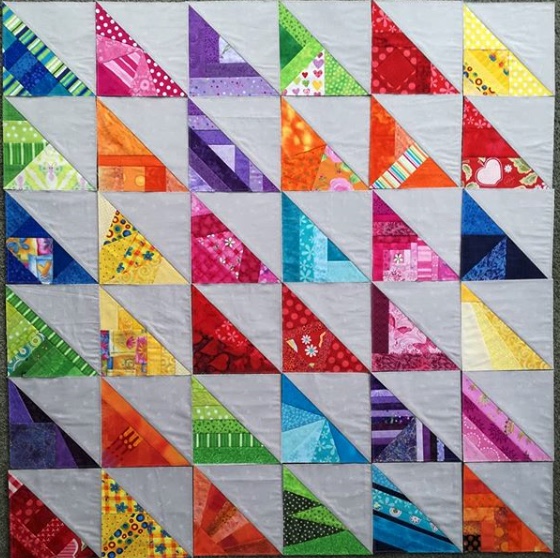
A puzzle sports gift is fun for anyone who loves sports! These high-quality brand-name products make perfect gifts for both triathletes or couch potatoes. These puzzles can be found in many retailers and are extremely versatile. There are many great options, from handcrafted wooden puzzles to online ones. Crosswords with sports scenes and triathlon puzzles are all available.
Handcrafted wooden jigsaws
A handmade wooden sports jigsaw will be a big hit with puzzle lovers. This puzzle, made of lacquered Chinese pinkwood, is a charming display for any room. This puzzle measures 6.25"L x 3-7/8"W x 4"H. This puzzle will be appreciated by any fan of baseball or football, no matter who the gift recipient is.
These puzzles made from handcrafted wood are unique and very fun. Traditional handcrafted wooden puzzles have a regular shaped piece. However, there are many that have unusual shapes. You can find puzzle pieces that are cut with a knob, but they may have different shapes. This can make it more challenging. You may find puzzles that combine both types of pieces. This makes it more appealing. Some puzzles even come with a custom heart connector! This is a great way for you to personalize your handcrafted wooden puzzle.

Online puzzles
You can find many puzzles related to sports online. You can choose from basketball players, footballers, tennis, handball and volleyball, as well as skiing and athletics. These puzzles are completely free and come in 20x11 sizes. You can also make your own. Make a custom puzzle if you are a group. Each member of the team can solve it together. Once you have figured out the answer to a puzzle, you can present it to them for a fun team bonding activity.
Sports Jigsaw Puzzles can also be an option for sports lovers. These puzzles work as brain teasers. These puzzles are fun to play multiple times or even framed as art. There are a wide variety of puzzle designs, from inspiring quotes to stunning photos. These websites let users upload their own photos. Puzzle lovers will be delighted to find a variety of puzzles with sports themes!
Puzzles that are team-oriented
Puzzles are a great option for team building activities. Puzzles not only make for a fun and engaging activity, but also encourage creativity and critical thinking. These activities can be used by groups of any size and can help to revitalize your team, as well as tackling obstacles that might have prevented it from growing. They encourage teamwork as well as problem-solving skills, which is crucial for effective collaboration.
An escape game is another great team building activity. These interactive puzzles allow employees to collaborate to solve the puzzles. Many escape games require problem-solving, communication, creativity, and creativity. These games can be used to help you demonstrate the behaviours that are required in a real-world work environment. You will see the benefits of teamwork when you play puzzle games together. This will make teamwork more fun and easier.

Team-themed jigsaws
You can find a jigsaw based on your favorite sports team. These puzzles often feature fun features such a logo of the team or mascot. Some puzzles may also feature a theme. These can include fun food items. The puzzles can also be broken up into groups of players. You can communicate the announcements by email or Whatsapp. You can also give each team an amusing name and describe the roles of the participants.
FAQ
What are some enjoyable hobbies for seniors
Senior citizens should enjoy engaging in fun activities. They should also try to stay active by participating in sports and other physical activities.
They may want to join clubs that allow them to meet others with similar interests. They will feel less lonely as their age.
Seniors should also keep up with the latest trends. For example, seniors could keep up with the latest fashions, art and literature.
How do I find a hobby that interests me?
You might feel as though you don't have a choice when you first start your quest for a hobby.
You might be thinking "I'm not very creative" or "I am terrible at sports" or even "I don’t know anything”.
But the truth is, you probably already have a lot of experience to draw upon when looking for a hobby.
It's only that you don't know it yet.
Take a look around your house. How much stuff do you own?
Do you have any toys from the past?
Perhaps you have a collection.
Maybe you've always wanted to learn how to cook.
Or perhaps you would just like to learn how to play the guitar again.
Whatever it is, there's likely something you can turn into a hobby.
It is important to recognize that you already have a lot of experience to draw from.
Once you have done that, you will be able choose a hobby that suits your lifestyle.
Why do we have hobbies?
Hobbies are an integral part of our daily lives. They allow us to relax, unwind and think creatively. These hobbies offer us the opportunity to learn new skills, develop valuable lifelong interests, and provide opportunities for us to do both.
Hobbies help us to find meaning and purpose in our lives.
They are great for spending your free time when there's not much else.
They are also very entertaining!
If you don't have time for a hobby, then you probably don't have time for anything else either.
So take a look at all the options available to you. Maybe you should consider starting a hobby.
How do I get started?
The first step toward starting any new hobby is to decide what kind of activity you'd like to pursue.
Passion is key once you have chosen your topic.
Understanding why you are interested in a hobby is important. This will help you find direction and a purpose.
Once you've decided what type of hobby you'd like to pursue, you can begin planning.
Take a look at the equipment you will need.
You should consider whether or not you will need to take classes or attend seminars.
Make sure that you have enough space in your home for your hobby.
You may also consider joining a club or group. These groups usually offer support and advice.
Also, consider how much money your hobby would cost.
What are your educational hobbies?
An educational hobby can be defined as an activity in which you learn something through doing it. This could be anything you want, such as playing sports or learning how to play an instruments.
The most important thing is that you find it enjoyable and entertaining. It doesn't have to be done all the time. However, if you get bored of it, you should think about other things you can do instead.
These activities could end up costing you far more than what you pay for.
What are some great hobbies ideas?
Hobby Ideas for those who love to teach and learn.
Hobbies can allow you to be creative and have fun while learning.
There are many hobbies. But they all share similar characteristics. They are usually enjoyable activities that don't require a lot of effort and can be very economical.
These also involve helping others.
You may not think of yourself as a teacher but there might be something you could do in order to help someone else learn.
You can make a difference in the lives of others by starting a hobby.
Statistics
- A new survey by Pew Research Center of teens ages 13 to 17 finds that 36% of girls feel tense or nervous about their day every day; 23% of boys say the same. (pewresearch.org)
- The Role of the Mind in Sex, Dating, and Love: Men in the “humor” condition received phone numbers from 42.9% of the female participants and were refused 57.1% of the time. (time.com)
- I am 100% biologically a woman (discover.hubpages.com)
- The intensity of the dialogue partners' bond at the end of the forty-five-minute vulnerability interaction was rated as closer than the closest relationship in the lives of 30 percent of similar students. (time.com)
- Much of this decline reflects the fact that teens are less likely to work today than in the past; among employed teens, the amount of time spent working is not much different now than it was around 2005. (pewresearch.org)
External Links
How To
How to Start Gardening
Gardening is one among the oldest forms. It requires patience, persistence, and determination. It is important to choose the right location for your garden. This could be a large plot of land or even just a small area in your backyard. Next, select the kind of plants that are most appealing to you. Do you prefer vegetables, or flowers? Some people enjoy growing herbs and others prefer raising livestock like rabbits. Before you decide which crops you will plant, consider the amount of space you have. If you live in a climate that experiences cold winters, then you might decide to grow fruits or berries as they do well in colder climates.
Once you have selected the plants you wish to plant, you should prepare your soil. Soil is essential in determining whether your plants will thrive or fail. Good quality soil contains organic matter that helps feed your plants' roots. Organic matter can include leaves, twigs and grass clippings as well as manure and compost. After you have prepared the soil, you will need to add nutrients. Depending on the type of plants you plan to grow, you may need different amounts of nitrogen, phosphorus, potassium, calcium, magnesium, boron, zinc, copper, manganese, iron, molybdenum, chlorine, sulfur, sodium, and so on. An online fertilizer calculator can help you calculate these values. There are many fertilizers on the market, so ensure you understand what you are buying.
After you have prepared the soil and added nutrients, it is time to wait for your seeds germination. The process can take between 2 and 3 months depending on how hot or cold it is in your region. Once the seeds have sprouted you will need to water them often. You can endanger your plants if you water them too often or too little. You should ensure that your plants get enough water at regular intervals. Avoid overwatering. Overwatering can lead to root rot and fungal diseases. When watering your plants, remember that most plants require less water during the warm summer months than in winter. You should also remember that some plants will need to dry out once they have been watered. Tomatoes, for example, need to be kept moist but not too wet. Soggy soil is not good for them. After the flowers have stopped, they must go into dormancy. Plants go dormant when they stop producing new growth and instead store energy for next year's harvest. During dormancy, the plant stops sending signals to its roots telling them to produce food. Plants continue to store energy throughout this period. However, the plant will die if temperatures drop below freezing or there is insufficient sunlight.
Living in urban areas may restrict the types of plants you can plant. Concrete sidewalks, roads, buildings and parking lots are all common in urban areas. These blocks block sunlight from reaching ground level. Concrete absorbs sunlight, which prevents the soil beneath from getting enough sun exposure. Because of this lack of sunlight, many plants cannot survive in cities. There are many plants that can survive in urban environments. Many trees, perennials, shrubs, as well as shrubs can be adapted to urban living. Many annuals are also possible to grow indoors in containers. You can grow fresh greenery year-round in containers.
Now that you have decided where to place your garden, chosen what you will grow, and prepared your soil, you are ready to plant!